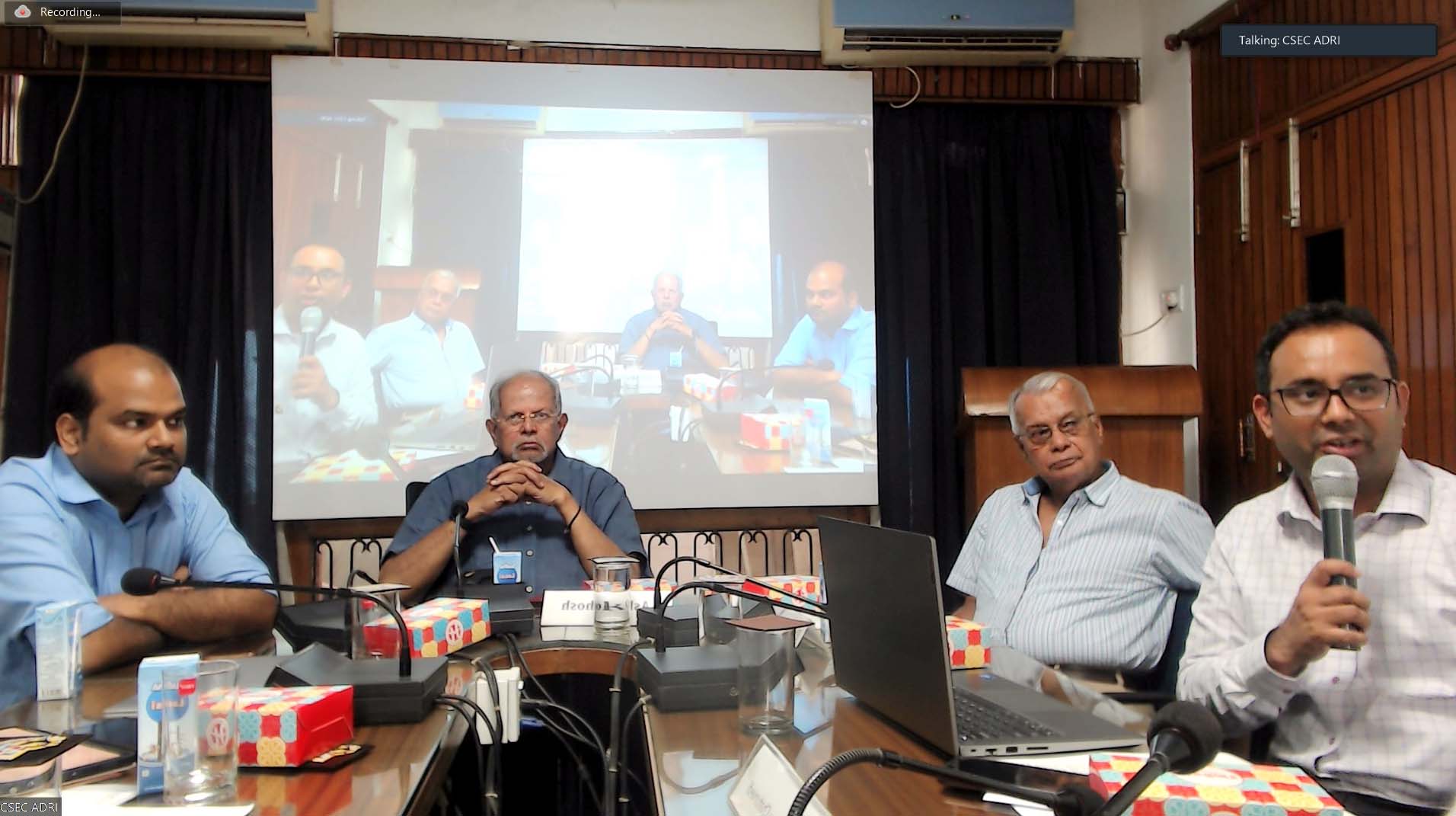Events of CSEC

Patna, July 01. The Centre for Studies on Environment and Climate (CSEC) at the Asian Development Research Institute (ADRI) co-hosted a roundtable discussion today on ‘Economic Growth Prospects of Bihar’ with the Council on Energy, Environment and Water (CEEW), which is leading the mitigation analysis under a project on 'Low Carbon Development Pathway for Bihar'.
Professor Prabhat P Ghosh, Member Secretary, ADRI welcomed the gathering with a glimpse of Bihar’s economic growth. In the special address, Professor Ashok Kumar Ghosh, Chairman, Bihar State Pollution Control Board (BSPCB) highlighted the need to reduce the dependence on the agriculture sector and proposed the use of alternative sources, other than conventional energy, to supplement the economic growth rate of Bihar in a greener and sustainable manner.
Dr. Bakshi Amit Kumar Sinha of CEPPF, ADRI discussed the sectoral economic growth rate along with the socio-economic conditions of Bihar w.r.t. India and the historical growth patterns and management of Public Finance.
Dr. Vaibhav Chatturvedi, a fellow from CEEW highlighted the need to understand the future energy system and emissions through the different socio-economic parameters, in charting pathways related to a net-zero economy for the state of Bihar.
The programme was graced by Dr. Harishwar Dayal, Director in Chief, Centre for Fiscal Studies, Government of Jharkhand, Prof. Sankar Kumar Bhaumik, Director, Patliputra School of Economics, Prof. Anirban Sengupta, Asst. Professor, IIM Bodhgaya, and faculty members from CEPPF and CSEC, ADRI and CEEW.